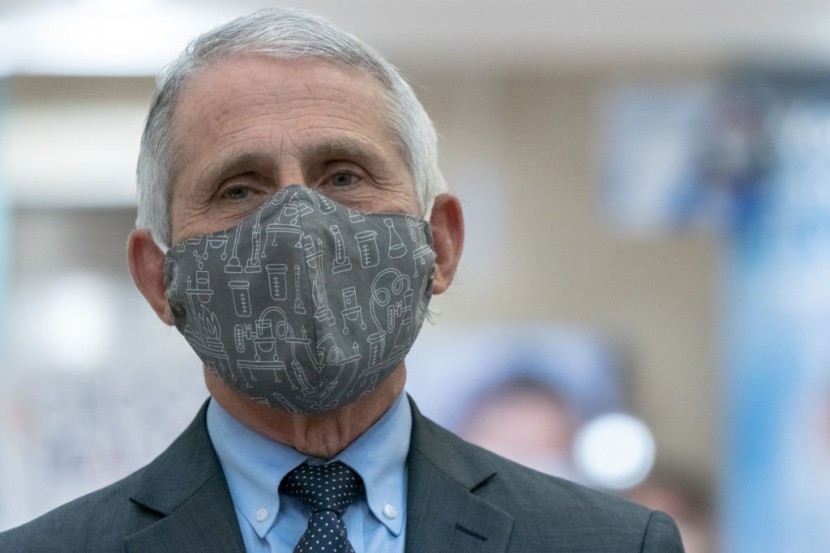
Dr. Anthony Fauci, White House top infectious disease expert, on Wednesday dismissed claims that he has changed his mind about the origins of the COVID-19 pandemic as more health officials believe it originated in a Wuhan lab.
During an interview on MSNBC's MTP Daily, Fauci, who is also the director of the National Institute of Allergy and Infectious Diseases (NIAID), said that he had not ruled out the possible of COVID-19 emerging from an accidental lab leak from the Wuhan Institute of Virology.
Origin of COVID-19
"Most of the scientists that I know feel that the most likely origin is a natural origin from an animal reservoir to human," Fauci said in Newsweek. "However, we have not ruled out the possibility that there could have been a leak from the lab of them working on the virus. It could have been that someone was infected early on, they brought him into the lab, and it came out of the lab, but it was already out in the community," he added.
His latest statement comes after a U.S. report prepared in may 2020 by the Lawrence Livermore National Library in California and revealed by The Wall Street Journal on Monday showed that a WIV lab leak was plausible. The study's researchers recommended further investigation into the virus' origins.
The report, which drew its assessment on a genomic analysis of the virus, was later used by the U.S. State Department in it's inquiry into the origins of the pandemic during the latter months of former President Donald Trump's administration.
A separate classified intelligence report from Business Insider previously circulated during Trump's presidency wherein three staff members working at the Wuhan Institute of Virology were reported to have experienced symptoms "consistent with both COVID-19 and common seasonal illness" and were hospitalized in November 2019.
For context, China announced the first known case of COVID-19 in humans in Wuhan in December 2019.
Lack of Evidence
An intelligence official, however, noted that the report lacked sufficient corroboration, though it has helped foster renewed interest in the "lab leak" theory.
Beijing has vehemently denied the U.S. report and dismissed it as "completely untrue." It also cited a March statement from researchers at the WIV, in which they said they "never dealt with Sars-CoV-2 before 30 December 2019."
A subsequent investigation by the World Health Organization found that COVID-19 wasn't the cause of the staff members' illnesses. It also concluded that a lab leak was an "extremely unlikely" source of the pandemic.
Leading WIV virologist Shi Zhengli also said that none of her workers contracted SARS-COV-2 or any other coronaviruses.
However, WHO investigators noted that they were given limited access to documents, with one of the documents bearing the title "CHN and WHO agreed final version," suggesting that the contents may have been pre-approved by Chinese officials, according to Vanity Fair.
Marion Koopmans, a virologist on the WHO's investigation team, also said the workers were tested for COVID-19 antibodies in March 2020, six months after they were hospitalized. Some studies have indicated that coronavirus antibody levels in the body declines significantly after six months.
Dr. Fauci has since requested Chinese officials to show him the full, detailed medical records of the three researchers who fell ill in 2019.








